Rivers of Fate Ending Explained: This intense Brazilian series Pssica, is directed by Quico Meirelles and Fernando Meirelles. Based on the novel by Edyr Augusto, the series has a talented star cast with Domithila Cattete as Janalice, Lucas Galvino as Preá, and Marleyda Soto as Mariangel in the main roles. Sandro Guerra, Ana Luiza Rios, Bruno Goya, Felipe Rocha, Gabriel Knoxx, Claudio Jaborandy, David Santos and many others also feature in the show. With just four episodes, each lasting about an hour, the series does not waste time taking the audience on a ruthless tale of revenge, crime, and survival in the Amazon.
Rivers of Fate Recap
The series begins with Janalice, a teenager, whose life spirals out of control when a compromising video of her is released by her boyfriend. Her devout Christian parents, instead of standing by her, turn against her and banish her to live with her aunt. At her aunt’s, Janalice faces harassment by her aunt’s boyfriend, landing her in an even more vulnerable situation. She soon turns to Dionete and Miltinho, who relate stories of missing girls, including Miltinho’s sister Luzia. These ominous warnings foretell the dark road that awaits Janalice.
Simultaneously, in the other part of the Amazon, Mariangel is confronted by her worst nightmare. When her husband and son are murdered by a river pirate attack led by the commander Preá, Mariangel is devastated. She vows to track down the murderers. Her revenge quest mirrors Janalice’s quest, creating two emotional narratives that converge later.
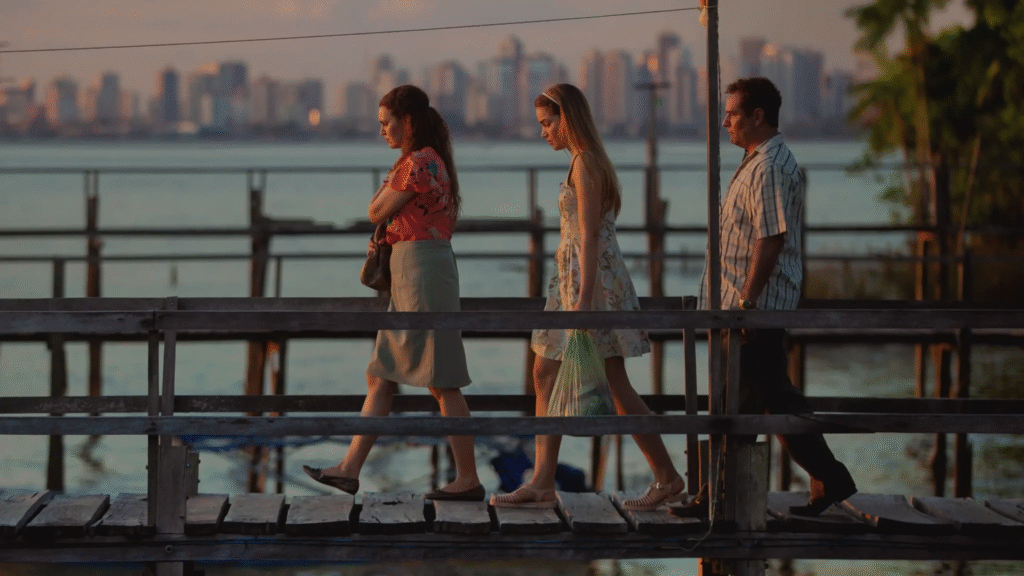
While Janalice fights to survive in her dangerous world, she is kidnapped by Preá’s gang and sold to affluent traffickers. Preá, in his own guilt of having kidnapped her, is attracted to her in complex ways. His developing affection makes his character more complex—neither a hero nor an all-evil character, but a man caught up in his own contradictions.
Mariangel is not willing to give up, though. She is aided by friends and starts pursuing the people who have killed her family, who are also behind Janalice’s kidnapping. Her determination to act in the face of adversity, since the authorities have turned a blind eye, makes her one of the most intriguing characters in the series Rivers of Fate.
By the point that the story has reached its turning point, the fates of Janalice, Mariangel, and Preá become intertwined in a gruesome and brutal confrontation with traffickers, corrupt bureaucrats, and a deadly auction in which Janalice herself is the auctioned product. It is here that the ending of Rivers of Fate leaves so many questions unaddressed—questions that we will now analyse in depth.
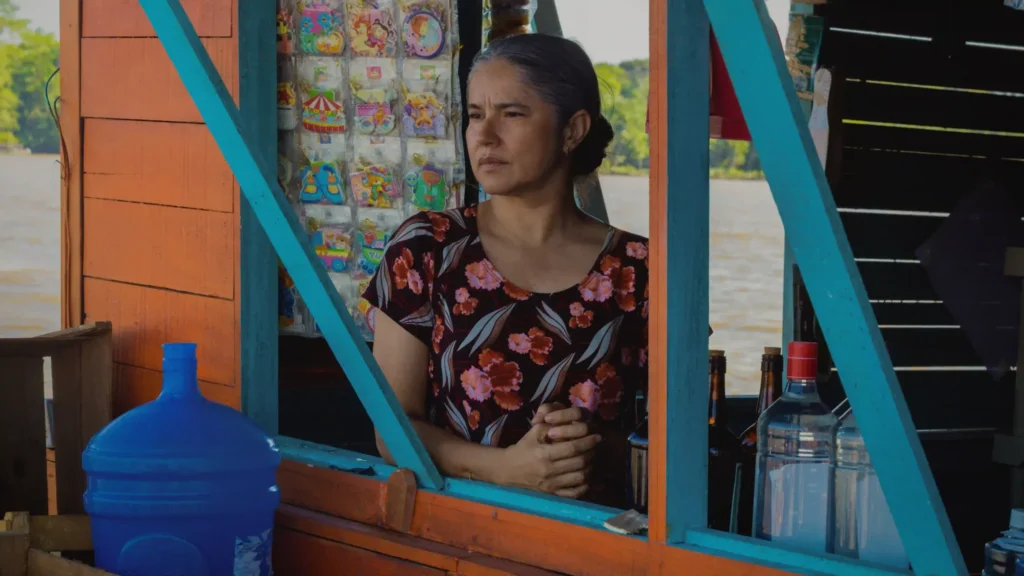
Rivers of Fate Ending Explained
How did Janalice’s Father Pass Away?
Pedro, Janalice’s father, is a more subdued but very tragic figure in the narrative. He was initially in agreement with his wife’s sending Janalice away, following the video scandal, in a reluctant way. As reluctant as he was, he let societal embarrassment and his wife’s power take precedence over him. This choice came to haunt him later when Janalice subsequently called, citing the abuse she had endured at her aunt’s house.
When Pedro learned that Janalice was kidnapped and sold to sex trafficking rings, his own guilt devoured him. He was blaming himself for leaving her behind and believed that he was a bad father, that he should have been with her when she needed him. He could not stomach the shame and the pain, so Pedro loaded a sack with stones, took a boat, and jumped into the river. His death was physical, but it was also symbolic of how silence and weakness in the face of injustice can destroy families from the inside out.

Also Read: The Map That Leads to You Review: Bittersweet but Soulless Love Tale That Feels Predictable and Flat
Why Did Janalice Refuse to Go With Preá When He Tried to Save Her?
Preá is perhaps the most complicated character in the Rivers of Fate series. He appears to go out of his way to assist Janalice, even trying to “rescue” her from sex traffickers. His motives, however, are not selfless. Whereas Mariangel was not self-serving, Preá’s interest in Janalice was self-serving—he wanted her as a possession.
Trusting Preá was never an option for Janalice. She had witnessed the violence and destruction of his gang, even the murder of Mariangel’s family. Even when he reached out, it was more like exchanging one captor for another rather than freedom. Turning him down was her assertion of independence, not letting herself be defined by men who viewed her as property.
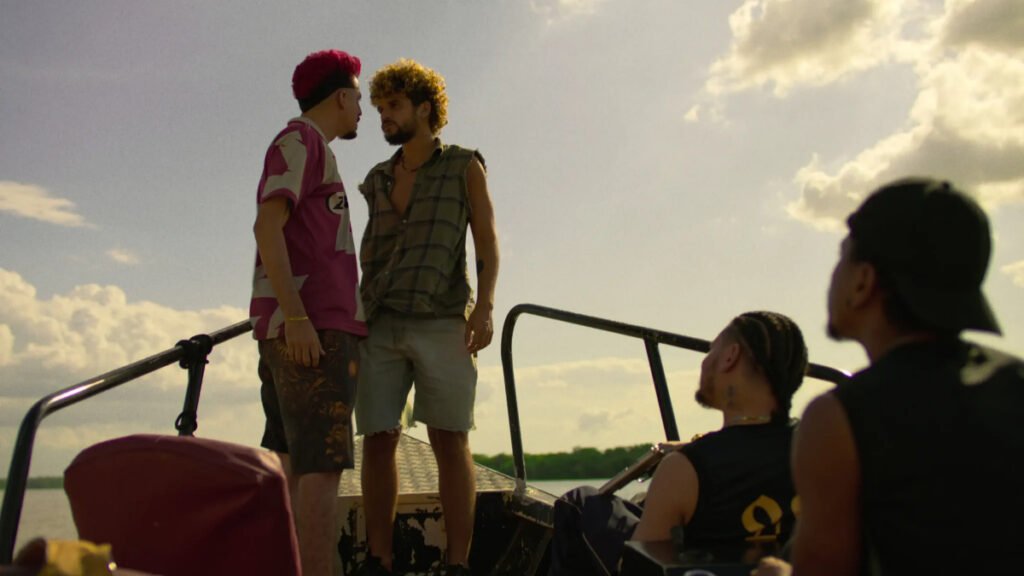
Who Killed Preá?
Preá’s demise occurs in a futile standoff during the climactic final scene. When Janalice attempts to flee, Preá and Philippe Soutin, the trafficker, are engaged in a struggle with one another. Both men are desperate to possess Janalice, a man possessed by obsession, the other by greed.
In the subsequent shootout, both Philippe and Preá are killed. Mariangel is in the vicinity with her gun, but Philippe’s bullet kills Preá. His death is symbolic and real, his quest for Janalice ends up bringing him to the same violence he had unleashed on others. Preá’s death is intended to illustrate the way crime and obsession end up destroying those who opt for it.
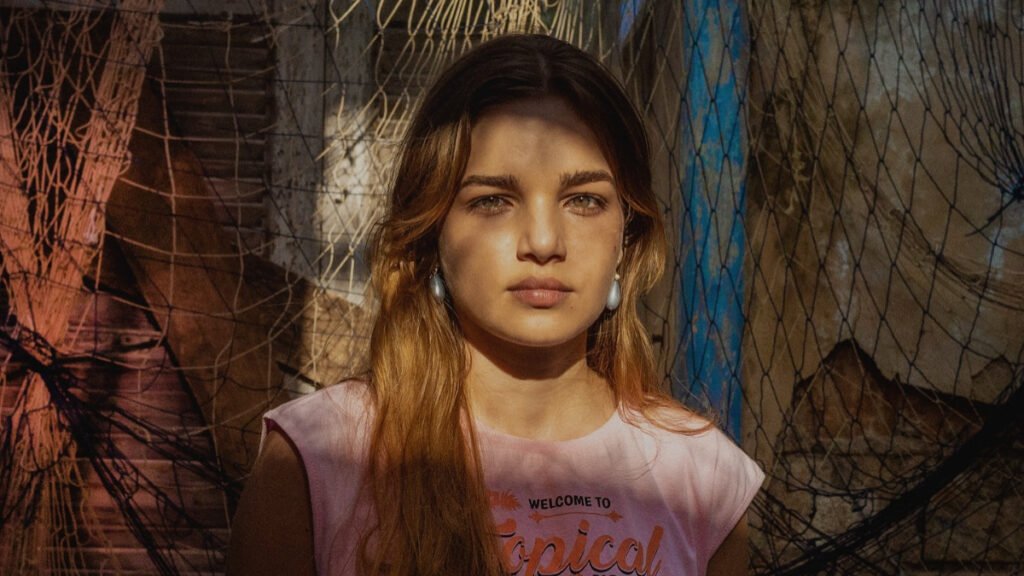
Did Janalice Succeed in Returning Home?
Yes, but not the way her parents had hoped. Mariangel is able to rescue Janalice unharmed after the auction and the shootout. She takes her to her mother, Lizete, giving her a chance to return to her family. However, Janalice doesn’t step inside.
She would rather stay with Mariangel than. Home to Janalice was no longer the house of abandonment her parents had left her in her time of greatest need. Mariangel, who had risked everything to save her, became the mother figure she had been searching for. This choice indicates Janalice’s maturity—she chose love, security, and acceptance rather than tradition and blood.
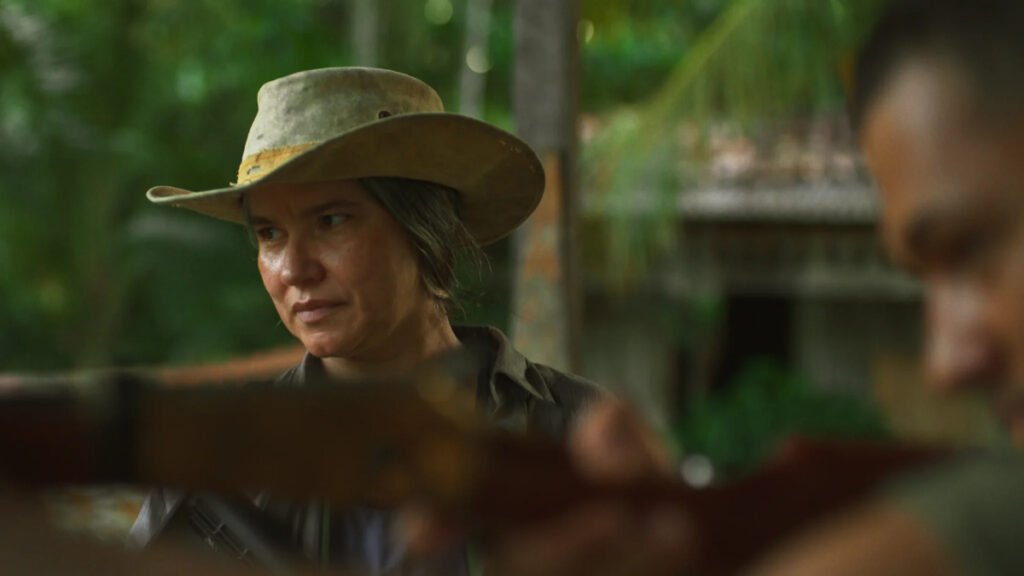
Did Mariangel Succeed in Her Revenge?
Mariangel’s revenge was two-pronged. Although she murdered some of the men responsible for her husband and son’s demise, such as Gigante, the cycle of violence went much further than her. The prostitution ring and corrupt politicians, such as Mayor Brazao, still dominated.
But what Mariangel had the ability to do was make her agony meaningful by rescuing Janalice. This is, in a sense, the closure she required. She may not have been able to bring back her family, but she could make sure Janalice’s life was not destroyed. Her revenge was not merely killing; it was bringing hope where there was none.
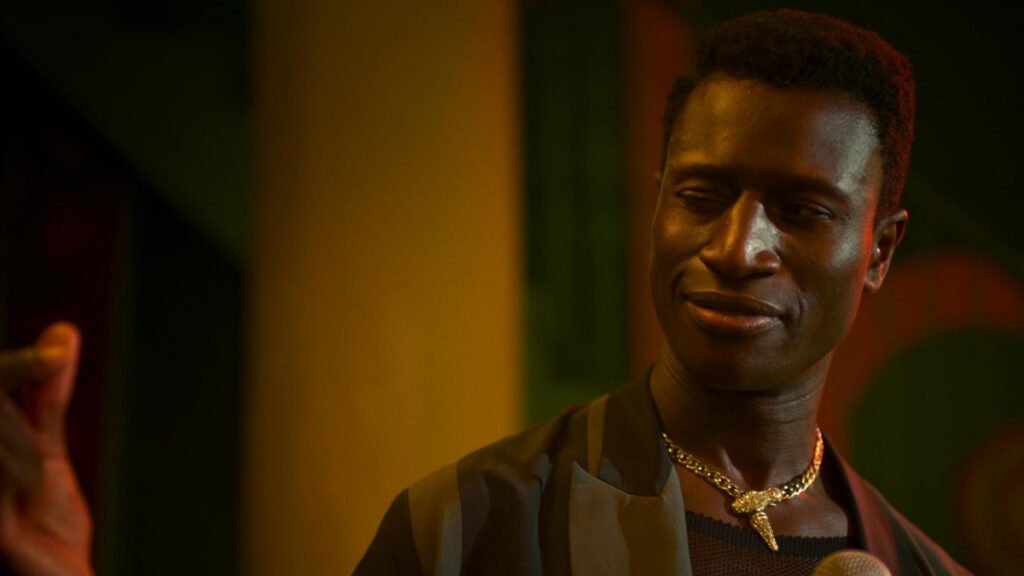
What Does the End of Rivers of Fate Symbolise?
The Rivers of Fate’s end is symbolic. Janalice’s spurning of Preá and her parents indicates that she is leaving behind patterns of control, either from men who wanted to possess her or from parents who would have preferred to be shamed into support. Selecting Mariangel as her new family is a sign of taking control back and creating her own future.
At the same time, the ending is a disconcerting reminder that evil is not eliminated. The traffickers and the corrupt officials are still alive, a reminder that freedom is precarious. Yet the bond between Mariangel and Janalice is a sign of strength. Even in the midst of a world of evil, solidarity among women is the beacon of survival.
Also Read: Rivers of Fate Review: Dark Emotional Punch That Leaves You Feeling Uncomfortable and Uneasy
